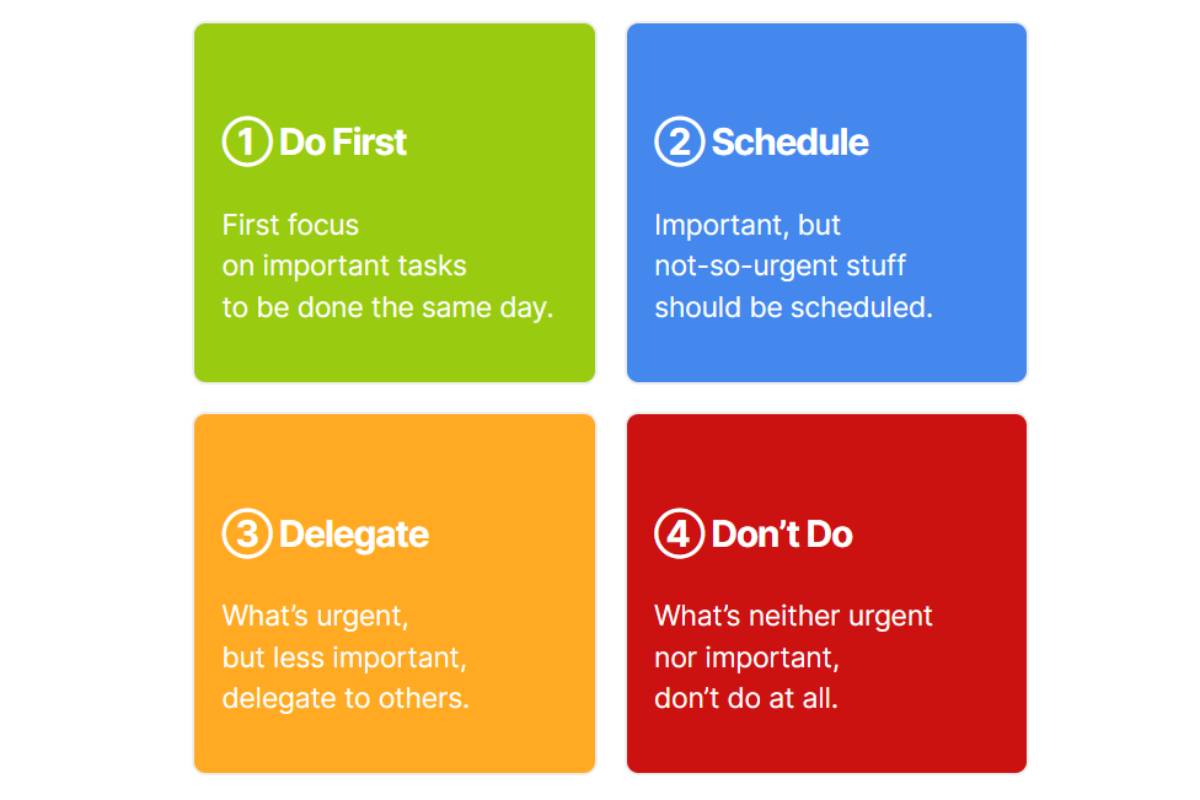We all tend to delay important tasks, whether it’s responding to an urgent email, completing a weekly report, or anything significant. Why do we often require motivation to get things done? Perhaps it’s because we haven’t delved into the root causes of procrastination. Whatever the reasons, we suffer the consequences of not maximising our potential.
Do you find yourself juggling numerous tasks on your to-do list but struggling to complete them? The good news is that there are tools and systems available to supercharge your productivity and overcome procrastination.
Let’s dive in with the first tip:
Pomodoro Technique
You’ve probably heard of this one before. The Pomodoro Technique involves working for 25 minutes on a specific task, followed by a 5-minute break, all tracked with a timer. After four cycles, you take a longer 30-minute break. This technique is particularly useful for students preparing for exams, as it helps you allocate focused time to your tasks.
Parkinson’s Law
Parkinson’s Law, introduced by the British historian and author Cyril Northcote Parkinson, revolves around a simple idea: “Work expands to fill the time available for its completion.” In simpler terms, if you have more time to do something, you’re more likely to procrastinate and delay the task. This law underscores the fact that we tend to be more productive when we have deadlines.
In a Medium post, Jari Roomer explains, “The essence of Parkinson’s Law is to set much shorter deadlines than you typically would. This compels you to concentrate on what’s truly important, avoid distractions, and reduce procrastination, ultimately making you highly productive and achieving better results in less time.”
Also read: Ready to Accept These 7 Life-Changing YES Moments.
Pareto Principle
Also known as the 80:20 rule, the Pareto Principle is quite straightforward. It suggests that 80% of the outcomes in a given situation or system stem from just 20% of the input.
In other words, a small portion of your efforts has a major impact. Understanding this concept is crucial because it helps you identify which tasks to prioritize in order to make the most significant difference.
You can apply the 80/20 rule to your daily tasks. Out of your entire to-do list, focusing on and completing 20% of the tasks will result in 80% of the impact for that day. To maximize your impact, pinpoint the tasks that matter most to you and concentrate on them.
Making the Most of Your Commute
The concept here is to use your commuting time wisely. Regardless of how much time you have, you can always make it count. During your commute, you can read, take a short nap, listen to audiobooks, or podcasts, or catch up on the phone with a friend or family member you haven’t spoken to in a while.
You can also use this time to go over your plans for the day, visualise your goals and priorities, and review the three most important tasks you need to accomplish. This preparation helps you start your workday with efficiency when you arrive at the office.

Establishing a Dedicated Space
Dedicated spaces are often underestimated, but they can significantly impact your ability to stick to a habit or complete a task in the long run. For example, if you want to write, set aside a specific area, whether it’s a desk, a cosy couch, or even your bed, according to your comfort and preference. The same principle applies to other areas of your life.
Focusing on the System, Not Just the Goal
This productivity method is highly praised by accomplished athletes and authors. The idea is to concentrate on the system or the process that leads to your goal, rather than fixating solely on the goal itself.
For instance, if you’re an entrepreneur, your goal might be to build a million-dollar business. Your system encompasses how you test product ideas, hire employees, and execute marketing campaigns. If you’re a musician with a goal to master a new piece, your system includes your practice frequency, your approach to tackling challenging sections, and how you receive feedback from your instructor.
Delegation: Valuing Your Time
Entrepreneur and investor Naval Ravikant recommends a clever concept: determining your ideal hourly rate in terms of personal value. By doing this, you can understand the worth of your time in dollars. If there are tasks you don’t enjoy and they cost less than your aspirational hourly rate, you should consider delegating them to someone else.
This approach not only saves you a significant amount of time but also allows you to concentrate on the tasks that truly matter to you.
Also read: 4 Reasons Why It’s Hard to Stay Disciplined.
The 5-Minute Rule: Overcoming Procrastination
Do you struggle to start new tasks because of procrastination? The 5-minute rule might be your solution. The idea is simple: commit to working on a task for just 5 minutes – no more. This tricks your mind into getting started, and once you’re in the groove, you’ll likely finish the task or invest more than 5 minutes in it. Whether it’s reading a book, hitting the gym, or any other task, the 5-minute rule can be incredibly effective.
Learning to Say ‘No’: Prioritising Your Commitments
While saying ‘yes’ can open doors to new opportunities and challenges, overcommitting can leave you feeling exhausted, stressed, and unproductive. As Warren Buffet wisely said, “The difference between successful people and really successful people is that really successful people say no to almost everything.” It’s crucial to be honest about what’s genuinely urgent and important to avoid spreading yourself too thin.

Eisenhower Matrix: Prioritising with Clarity
The Eisenhower Matrix is a straightforward tool that helps you organise and prioritise tasks based on their urgency and importance. The concept involves identifying less urgent and less important tasks, which you can either delegate or decide not to do at all.
Final Thought: Enjoy the Journey
Lastly, remember that enjoying the journey is key to productivity. When you have fun doing something, productivity naturally follows, and you won’t need external motivation. Just think about it: you don’t need to motivate yourself to relax with friends and watch Netflix, right? If you can find a way to make tasks enjoyable, your productivity will naturally soar.






